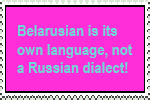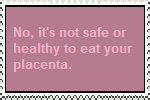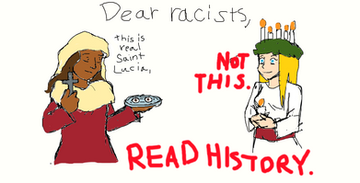HOME | DD
 DaBair — Suck it up, Putinists!
DaBair — Suck it up, Putinists!

Published: 2024-03-18 23:43:27 +0000 UTC; Views: 1187; Favourites: 9; Downloads: 0
Redirect to original
Description
I've always been critical of Vladimir Putin's government, and especially since he invaded Ukraine two years ago. But I'm not here to talk about Ukraine. I'll be talking about its neighbor Belarus. Belarus is run by another dictator, Alexander Lukashenko, who is pro-Putin. Belarus is in a pretty bad situation, especially for its native people, the Belarusians. Despite Belarus being the Belarusians' country, the Belarusian government only uses Russian and classifies Belarusian as a dialect of Russian. In fact, using Belarusian is strongly discouraged and at times forbidden - people have even been arrested for speaking Belarusian. But here's the thing: Belarusian is not a dialect of Russian. It's its own language with its own history. (Same goes for Ukrainian.) Russian propaganda claims that Russians, Belarusians, and Ukrainians are all the same people. This is not true. They are three distinct ethnic groups who speak East Slavic languages and have similar cultures, but otherwise are distinct from each other.Belarusian contains a lot of similarities to Ukrainian and even Polish despite the latter being a West Slavic language. Belarus was ruled by Poland for much of its history, so that's why it contains a lot of Polish influence. While Belarusian and Russian both have 32 letters in their alphabet, Belarusian has a few letters that Russian doesn't. Belarus makes use of the letter H, which is found in Ukrainian but not in Russian - Russian uses G instead. Names are different too - for example, the name Vladimir is actually Uladzimir in Belarusian. Belarusian and Ukrainian (as well as Rusyn, a little-known language spoken in the Carpathian Mountains of Ukraine) are descendants of the Ruthenian language, while Russian is not. Ruthenian and Russian are both descendants of the Old East Slavic language spoken in Kyivan Rus during the Middle Ages. They are about as close to each other as English is to German - close, but still distinct. Belarusian as well as Ukrainian are closer to other Slavic languages than Russian is since Belarusians and Ukrainians stayed put in their own nations while Russia expanded all the way to the Pacific, picking up words from conquered peoples. (If anything, Russia is more of an outlier among Slavic peoples since Russia ended up becoming a world power and was rarely ruled by foreigners.)
Unlike Russia, Belarus was ruled by foreigners for most of its history. Belarusian was not held in high prestige in the Russian Empire, which considered Belarusian and Ukrainian to be inferior to Russian - Belarusian was considered a peasant language, even more so than Russian was. (Many upper-class Russians spoke French because they considered it more refined than Russian.) Both the tsars and the Soviets encouraged ethnic Russians to move to Belarus, making Belarusians a minority in their own country. When Poland became independent western Belarus gained some freedom, but the Soviets undid this after WWII when they took over eastern Poland. While Ukraine raised the status of Ukrainian when it became independent, the reverse happened with Belarusian. Nowadays, many Belarusians can't even speak Belarusian. Even the Belarusian Orthodox Church is considered a subsidiary of the Russian Orthodox Church rather than a church in its own right. Sad as it may seem, this is how Lukashenko rules his country. Luckily, there is an opposition in Belarus which aims to overthrow him, but so far they've had little success. The opposition also by and large opposes the war in Ukraine, unlike the government who supports it.
I hope that someday, Belarus will be free from its dictator and people there will be able to speak Belarusian without fear.
Related content
Comments: 2

👍: 2 ⏩: 0

👍: 1 ⏩: 0























